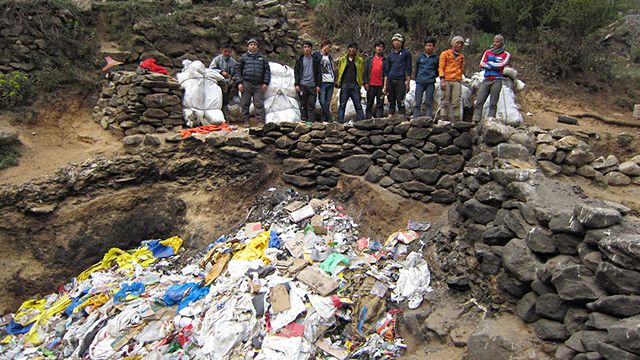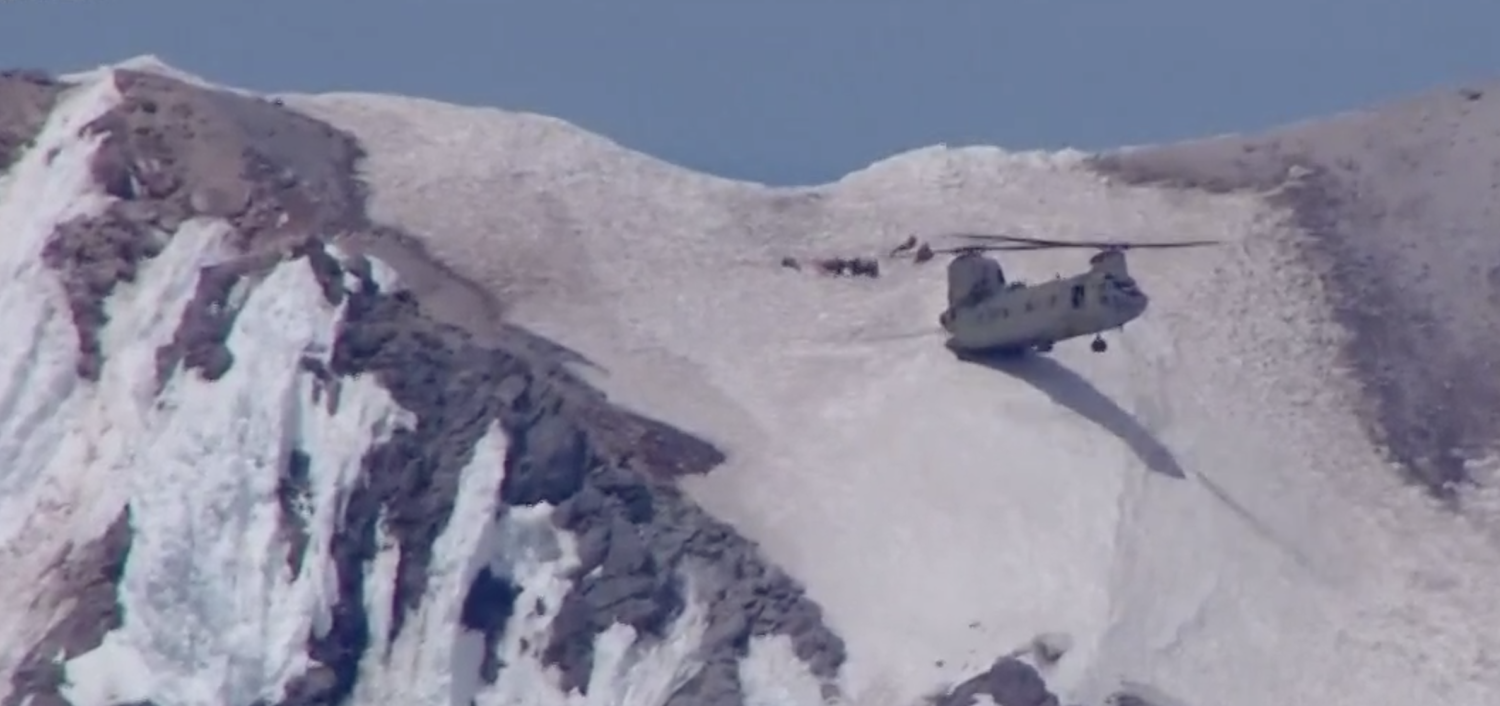
With the end of the year’s main climbing season, mountaineers generated over thirty tonnes (over 70,000 pounds) of waste below Camp II on Mt Everest, an official at Sagarmatha Pollution Control Committee (SPCC) said. After nearly 1,000 climbers and their support staff spent about two months on the slopes of Everest this season, “Locals collected more garbage in the region this season than in the past two seasons,” said SPCC Chairman AngDorje Sherpa.
SPCC Chairman AngDorje Sherpa said the garbage management staff collected 71,080-pounds garbage generated by climbers from Everest base camp and Camp II this season. A large amount of the trash can be either burned, or recycled. An additional 28,649 pounds of human waste and 8,840 pounds of kitchen waste were also removed from the mountain. Yep, you read that right, almost 30,000-pounds of human excrement!
On a more positive note, it is not all bad news, as the efforts to clean the mountain are paying off. According to AngDorje Sherpa, Base Camp is now completely free of garbage.

SPCC has been working for more than 25 years to keep Mt Everest and its foothills clean by building appropriate waste management infrastructure, setting up a system for waste segregation and disposal, strengthening community participation in waste management, disseminating public education and formulating policies for proper garbage management in coordination with the government, he added.
The UN Environment Patron Ben Fogle, who recently returned from Mt Everest summit, reported that he found the Everest trail cleaner than the streets in Great Britain. “SPCC’s efforts are really commendable.” According to Sherpa, SPCC has set up a system for segregating combustible and non-combustible garbage for sustainable management of waste in the Everest region. “There are more than 70 garbage bins at various resting points along the major trekking trails of the Everest region,” he added.

The SPCC has also partnered with the Mt Everest Biogas Project to convert human waste into biogas through an anaerobic biogas digester, and Tara Air also announced that it would fly out at least 100 tonnes of waste from the Mount Everest region in 2018 as part of its commitment to Sustainable Development Goals, Sherpa added.




